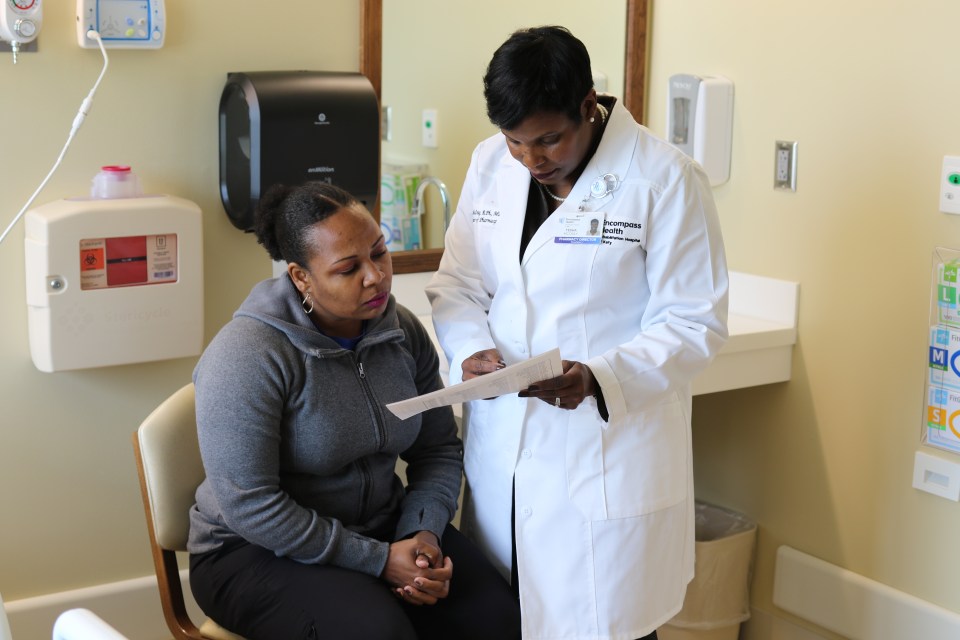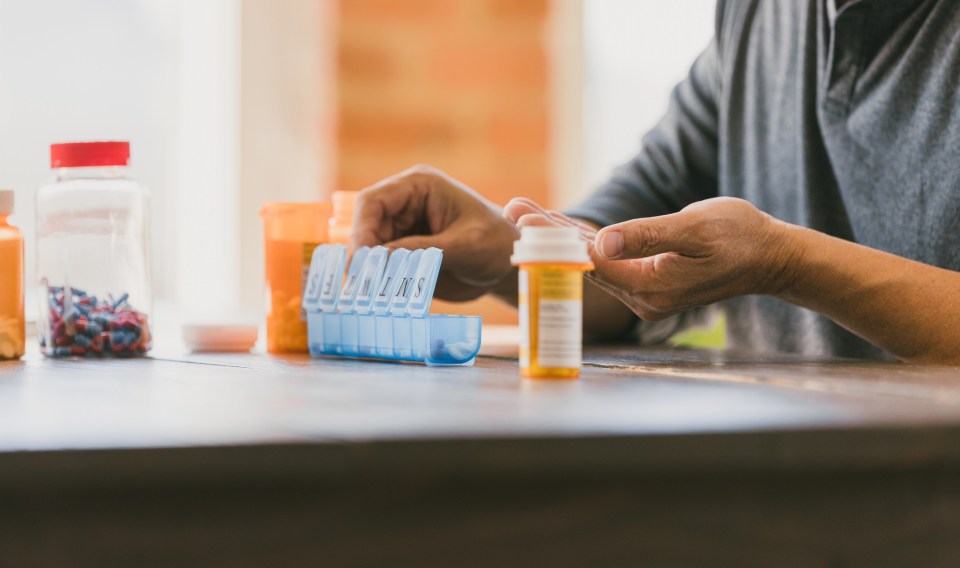A new illness or injury may bring physical or emotional challenges, but it often comes with new medications and treatments too. In order to help patients understand their new medications and their management, pharmacists become an integral part of a patient’s care team while in the rehabilitation hospital, and there are many ways they help keep them safe that may not necessarily be noticed by patients and caregivers.

Lourdes Colón, director of pharmacy at Encompass Health Rehabilitation Hospital of Miami, has been in rehabilitation for 11 years and became a pharmacist to provide care and make a difference in patients’ lives. Colón and her team of four’s mission is to provide the highest quality of pharmaceutical services to their patients focusing on patient safety. The following are some of the safety measures they’ve implemented at Encompass Health Miami.
Medication reconciliation
Once a patient is brought into the inpatient rehabilitation hospital, the pharmacy team goes through a process called medication reconciliation, which allows the healthcare team, patient and the patient’s caregiver or family to partner in the creation of an accurate list of medications for the patient based on what they are currently taking, as well as the medications recommended at other points in his or her healthcare journey.
This process helps avoid medication errors such as duplications or drug interactions that could cause adverse side effects. Some of these side effects, such as nausea and dizziness, could pose challenges in helping a patient complete their therapy hours during their stay, so the pharmacy team pays special attention to those for the patients’ safety.
In the same way, all medications are adjusted based on patients’ renal function, eliminating the possibility of drug accumulation and consequent side effects.
Anticoagulation monitoring
Medications like anticoagulants are one class of medications that are more prone to interact with other medications or diseases and cause serious adverse effects on a patient. The most typical side effect of anticoagulants is bleeding. To reduce this possibility, the pharmacy team at Encompass Health Miami has a process of monitoring all anticoagulant medications on every patient. In this process, the pharmacist analyzes the indication of the medication, dosage and frequency integrating patients’ renal function to determine that the medication is appropriate and the dose is correct for the patient, Colón said. This thorough process is documented on each patient chart for continuous monitoring and as an interdisciplinary informational source.
Antibiotic monitoring / Stewardship program
Antibiotics is another important topic. Inappropriate antibiotic management leads to patient hospital readmissions.
“In our hospital, following The Joint Commission standards, we started an Antibiotic Stewardship Program, which is an interdisciplinary group composed of infectious disease physician, nursing, infection control, pharmacy and quality. The purpose of the program is to develop hospital-specific guidelines for the management of the infectious diseases that mostly affects the patient population of Encompass Health Miami,” Colón said. “We are very proud of our program and our pharmacists the same way they monitor our patients in anticoagulation medications, they also monitor all our patients with antibiotic treatments. Our main goal is to be assertive and provide the correct treatment on time.”
Other initiatives
Other initiatives that the pharmacy department works on daily for the safe administration of medications include appropriate handling of a patient’s own medications, monitoring of pain medications, renal dosing on patients and drug levels monitoring, among others.
Being present and available
Colón and her team make it a priority to spend time with patients during their stay in the inpatient rehabilitation hospital. This allows patients to become familiar with a member of the pharmacy team should they have questions about medications during their stay.
During daily huddles with other clinical team members, the pharmacy team is able to help address any medication concerns with the attending physician, therapists and nurses. This discussion is important for the pharmacist in making necessary adjustments to the patient’s medications. A member of the pharmacy team is also on call at all times should there be a question about a patient’s medication or a side effect the patient is experiencing.
“The role of the pharmacist in patient care and medication safety is expanding every day. Our profession is growing and our pharmacists are specializing which make us essential members of healthcare interdisciplinary teams,” Colón said.
Since nurses are responsible for delivering and administering medications to the patients, the pharmacy team is thorough in their electronic charting notes and have also constructed a window in the pharmacy where nurses can swing by to get more information from the pharmacy team directly.
“We want the nurses to feel well informed and that they can come to us directly should they have questions about the patient medication treatments,” Colón said. “The pharmacy team should be a medication information resource not only to our patients and their families, but also to our colleagues.”
Educate patients and caregivers
Taking a new medication or a lot of medications at once can be frightening to a patient and caregiver. There is a list of side effects and specific instructions for each medication on what dose to take, when to take the medicine and what time of day each dose should be taken. To make the patient and caregiver feel more prepared for their transition back to the community, Colón or a pharmacy teammate sits down with the patient and caregiver prior to their discharge date to educate them on the medications and answer questions. Education and confidence will help a patient remain compliant with their medications after they leave the inpatient rehabilitation hospital, which is key to preventing medical complications or even a return to the hospital.
“We visit patients to explain topics such as side effects and answer questions about where they’ll be able to get their medications,” Colón said. “If the patient has provided us with the pharmacy information, we can send the prescriptions electronically in order for the patient to have the medications ready just right before going home.”
The patient can also request their list of medications to be outlined in his or her Encompass Health Wellness Information and Tools for Health (WITH) notebook, which is a care journal given to all Encompass Health inpatient rehabilitation patients that outlines important information provided by their care team. This guide becomes a great resource upon the patient’s return to the community, Colón said.
Most importantly, patients should feel comfortable asking questions about their medications in order to increase their own knowledge and remain compliant, which will lead to a stronger recovery. For more information on how to talk to your pharmacist about your medication treatments, read these tips from the FDA.
The content of this site is for informational purposes only and should not be taken as professional medical advice. Always seek the advice of your physician or other qualified healthcare provider with any questions you may have regarding any medical conditions or treatments.



